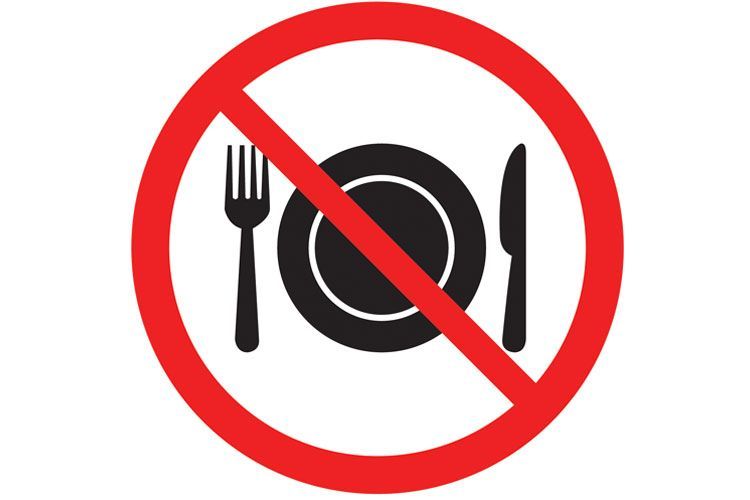6 Tips To Keep Your Memory Sharp
Memory can become a serious issue as you age; here are some ways to keep your synapses firing.

The forgetful, dithering elderly person is such an ingrained cliche, that most people simply resign themselves to it as an inevitable, unavoidable future we’re all barreling towards.
But if you think of your memory as a muscle, and treat it accordingly, you’ll find that you’ll be able to maintain a much stronger and healthier mental functionality well into your later years. In fact, according to research cited by PsyBlog based on work conducted by UCLA memory expert Professor Robert Bjork, memory may not actually decay at all as we get older. We just forgot how to access it. Here are a few exercise tips you can start adopting today to ensure you’ll continue to fire on all cylinders.
Eat Colorfully

It’s not a stretch to say that your memory banks are like a muscle. In fact, diet and exercise are as beneficial to it as they are any other part of your body — so your memory improvement starts on your plate. Antioxidant-rich fruits and vegetables are memory superfoods; when combined with foods rich in omega-3 fatty acids, like nuts and salmon, it can have an enormous impact on your recall ability. So the more vibrant and colorful your breakfast, lunch, and dinner plates are, the better off you’ll be.
Workout Pt. 1

Nope, we’re not letting this muscle metaphor go any time soon. And, yes, you can bench press your memory by tricking your brain into thinking it’s back in school. By attempting to learn a new skill or hobby — something like a new language or a musical instrument or even crocheting — you re-energize your brain and make it more receptive to new information and more likely to hang onto it.
You can also take refresher courses in subjects you used to be very well versed in, or maybe watch a film or television series about a historical event you used to study (or even participated in), in order to re-learn things and keep them fresh. In fact, just looking through old photos can do the trick. Therapists call it “recall therapy,” and it’s proven effective in treating dementia and PTSD.
Workout Pt. 2
Have you ever heard of a “memory palace”? Former U.S. Memory Champion Joshua Foer employed this technique and swears by it. Essentially, the process encourages you to assign images and words to complex pieces of information (such as long strings of numbers) that are easier for your brain to quickly callback. So you aren’t so much memorizing numbers as you are turning them into photo collages you can reference and store much more easily.
Slow Down

Wait, haven’t we just been telling you to keep your brain on a virtual treadmill? Well, yes, but you also need to give it some rest in between sets. Neural research has shown that the brain needs 8 seconds in order to commit something to memory. So if you’re multitasking — you might be getting a lot done, but fat chance you’re going to remember much of any of it. If you're juggling multiple pieces of information at once, the brain doesn’t have enough time to absorb it — and that has an impact on decision making, reading comprehension, and, yes, memory.
So give your brain time to take in information one piece at a time, and you’ll find your recall and overall mental acuity will increase. This is why meditation is seen as a great way to curb the effects of dementia. Adding 10 or 15 minutes a day for calm reflection helps your brain do its job more efficiently.
Fast (The Non-Eating Kind)

The best fuel for your brain is ketones, which is the fat your body metabolizes when you cut back on carbs. Otherwise, you’re just burning sugar, or glucose, and that’s not really doing much for your brain (in fact, avoiding sugar altogether, while extremely difficult for most normal humans, should be part of a brain-healthy diet). So consider adopting a one-day fast every once in awhile so your body can burn a little of the good ketone-rich fat instead of sugar. Not only will it be better for your overall health, it promotes brain cell growth and strengthens connectivity.
Hydrate

Doctors can, and do, say this until they’re blue in the face, and yet we all still seemingly require a reminder every other day. So once more for the cheap seats: DRINKING WATER IS REALLY, REALLY, REALLY GOOD FOR YOU AND YOU SHOULD DO IT A LOT. EVERY. DAY. Again, this isn’t only a total body health suggestion — studies have shown that even mild dehydration causes measurable brain shrinkage that adversely affects concentration, alertness, and short-term memory. Your brain is 73% water. Even 2% dehydration can severely impact its functionality. If you need help figuring out how much you should drink per day, check out this hydration calculator for a general estimate.
- Trusts Cheat SheetTrust us when we say this is as basic as we can make Trusts.Read more
- All You Need To Know About Advance DirectivesWhen you can’t make health decisions for yourself, this is the north star...Read more
- How To Create A Do Not Resuscitate Order (DNR)A DNR is a medical order that states you don't want cardiopulmonary...Read more
- How Organ Donation WorksIf the person who died was a registered organ donor, measures will be taken...Read more



